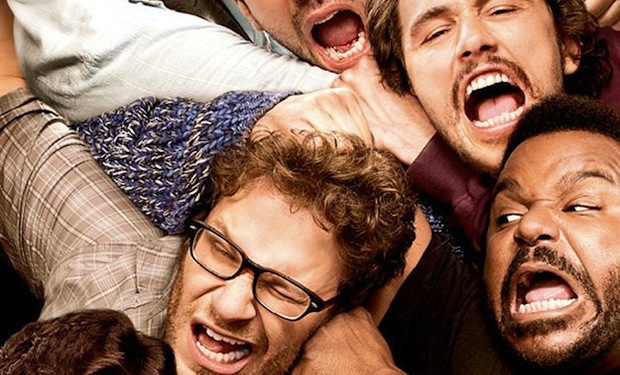When the Pharisees saw this, they asked his disciples, “Why does your teacher eat with tax collectors and sinners?”
On hearing this, Jesus said, “It is not the healthy who need a doctor, but the sick. But go and learn what this means: ‘I desire mercy, not sacrifice.’ For I have not come to call the righteous, but sinners.”
— Matthew 9:11-13
Because pompous judgmentalism feels good and loving forgiveness is difficult, it’s no surprise that some Christians come to sound suspiciously like the Pharisees. The guys who criticized Jesus for having dinners with sinners are alive and well, leveling charges of moral relativism at anyone who repeats the Christly injunction to judge not and has the bad manners to mean it. One trick to achieving the Pharisaical mindset is to take those portions of Scripture that condemn stuff and read them as broadly as possible, then take the lines calling for forgiveness and read them as narrowly as possible. Thus if you can find a 6th century BC verse in Leviticus demanding the death penalty for homosexuals, then by gum Neil Patrick Harris must die! Whereas when Jesus said, “Turn the other cheek,” he only meant if you happened to get slapped by a Roman Centurion. “Love your neighbor but…” “Judge not but…” “Forgive your enemies but…” If such people would take their buts out of their heads, they would discover that the interior task assigned to Christians is so difficult that it leaves very little time for condemning other people. Damn it.
All of which I mention on the way to explaining why I so thoroughly enjoyed and admired the raunchy, drug-filled, scatological comedy This Is The End and why I wish openly Christian filmmakers made films more like it.
The plot: a group of raunchy comedy stars — Seth Rogan, Jay Baruchel, James Franco, Jonah Hill and so on — play themselves as shallow, backbiting, pot-smoking narcissists. They’re gathered at a party at Franco’s new mansion when the Apocalypse hits, complete with Rapture. At first, they can’t believe it because, if the good people are being taken up into Heaven, why would actors be left behind? They’re actors! They bring joy to people’s lives! But as things go from apocalyptic to worse, the sober truth begins to dawn.
“This means there’s a God,” says Rogan, in one of the movie’s best exchanges. “Who saw that coming?”
“Like… 95 percent of the world,” answers Baruchel.
[jwplayer config=”pjm_lifestyle” mediaid=”58957″]
The film is so good-natured and self-aware that even when the jokes were dopey it sometimes made me laugh out of pure pleasure. There’s plenty of vomit and urine-drinking and foul language but the underlying idea of having Hollywood confront the fact of the moral universe is so good and so well played out that a lot of the nonsense becomes almost as funny as the filmmakers think it is. And in the midst of it, there are genuine comic highlights, like Jonah Hill learning to pray, “It’s me, God. Jonah Hill. From Moneyball.” As the guys discover what it really takes to get into Heaven, their bafflement increases hilariously. Franco’s last scene still makes me laugh just thinking about it. The whole thing, beginning to end, was everything a picture like this should be.
Which brings me back to my original point. I wonder how many so-called Christian filmmakers would make a movie like this — just as I often wonder how many Christian booksellers would carry a novel about an axe murderer who falls in love with a prostitute (ie. Crime and Punishment). Because, while squeaky clean Christian entertainment (you know what I mean) does serve the purpose of making good values look good and confirming believers in their faith, I can’t help feeling that a movie like This Is The End more effectively reaches out to people where they actually are.










Join the conversation as a VIP Member